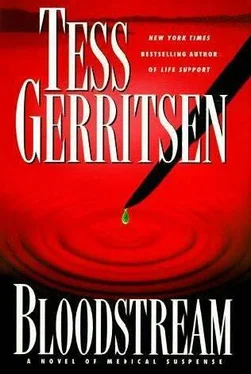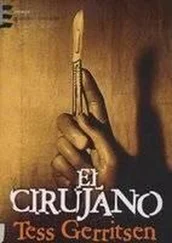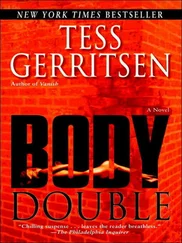Just the thought made her heart lift. She walked faster.
Since when did schoolgirls go out in public wearing fancy underwear? wondered Lincoln as he watched the students gather on the dance floor. He remembered the school dances of his own youth, the girls in their shiny hair and pastel dresses and satin miniskirts. Tonight the girls looked like a gathering of tarted-up vampires in their black lace and spaghetti straps. A few of them had painted their lips black too, and with their white winter faces, they reminded Lincoln of corpses wandering around the murky gym.
As for the boys, well, they were just as likely to be wearing earrings as the girls were.
Pete Sparks, standing beside him, said, “You’d think they’d catch pneumonia in those getups. Can’t believe their mothers let ‘em out looking like that.”
“I bet their mothers have no idea,” said Lincoln. He had seen many of the girls arrive modestly dressed, only to duck into the bathroom and emerge stripped down to the skimpiest of outfits.
Loud music suddenly blasted from the speakers in a driving beat. After only a few minutes of that racket, Lincoln was desperate to escape.
He stepped through the double doors of the gym, into the relative peace of a cold night.
The snowfall was gentle, just a fluttering of silver past the street-lamp.
Standing beneath the building’s overhang, he turned up his jacket collar and gratefully inhaled air that was sharp and clean.
Behind him, the door opened and shut, and he heard Fern say, “Too much for you too?”
“I had to take a breather.”
She came to stand beside him. She was wearing her coat, which meant she’d come out with the intention of staying for a while.
“Does it ever feel like it’s all just too much responsibility, Lincoln? Like you’re ready to call it quits and just walk away?”
He gave a rueful laugh. “At least twice a day.”
“Yet you’re still here.”
He looked at her. “So are you.”
“Not because I want to be. It’s because I don’t see any alternatives." She looked up at the falling snow, and said softly, “Doreen doesn’t deserve you. She never did.”
“It’s not a matter of people deserving good luck or bad, Fern.”
“Still, you should’ve had better. All these years, I’ve watched how miserable she’s made you, and I kept thinking how unfair it was. How selfish she was. Life doesn’t have to be unfair. We can choose happiness.” She paused, marshaling the nerve for what she had to say. He knew what it was; he’d always known, and had always avoided hearing the words spoken aloud, because he knew the aftermath would be humiliating for her, and painful for him. “It’s not too late for us,” she said.
He released a regretful sigh. “Fern-”
“We could pick up where we left off. Before Doreen.”
He shook his head. “We can’t.”
“Why not?”
He heard the neediness in her voice, the desperation, and he had to force himself to meet her gaze. “There’s someone else I care about.”
She took a step back, retreating into the shadows, but not before he’d seen the tears in her eyes. “I suppose I already knew that?’
“I’m sorry.”
“No. No, there’s no reason to be sorry” She shook her head and laughed. “It’s just the story of my life.”
He watched her turn back to the building. She paused to square her shoulders, regain her pride. Why couldn’t Fern have been the one? he thought. Had he fallen in love with her, had they married, it might have been a reasonably happy union.
She was attractive enough, intelligent enough. Yet something between them had always been missing. The magic.
In sorrow he watched her cross to the gym door and pull it open. At that instant, the sounds of shouting and running feet suddenly spilled out the open doorway.
“What’s going on now?” said Fern, and she ran into the building with Lincoln right behind her.
Inside, they found mass confusion. The punch bowl had tipped over, and a pool of strawberry-colored liquid was spreading across the gym floor. The music was still pounding away, but half the students had retreated against one wall, where they milled together in alarm. Others were clustered in a circle near the sound system. Lincoln couldn’t see what was happening at their center, but he heard a loudspeaker thud to the floor, and heard Pete Sparks and the chaperones all shouting: “Break it up! Back off, back off!”
As Lincoln pushed into the circle, another amplifier tipped over and splashed into the river of punch. There was a deafening squeal and the crowd clapped their hands to their ears, backing away as electrical sparks shot up.
In the next instant, the music died. So did the gym lights.
The darkness lasted only a few seconds, but in that brief pause before the emergency lamp came on, panic seized the crowd. Lincoln felt screaming kids slam into him in their rush to reach the exits. He couldn’t see who was coming at him, could only hear the sound of stampeding. He felt someone go down near his feet, and he blindly reached down and hauled a girl back up by her dress.
The emergency lamp at last flared on, one inadequate spotlight in the far corner of the gym. It was just enough light to see the shadowy chaos of running figures, kids stumbling back to their feet.
Then Lincoln focused on a scene that chilled him to the marrow. Pete Sparks had fallen to his knees and seemed too dazed to notice the overweight boy standing beside him. The boy reached down and removed the weapon from Pete’s holster.
Lincoln was too far away to disarm the boy with a tackle. He managed to take only two steps forward, then froze as the boy turned to face him, rage glowing in his eyes. Lincoln recognized him. It was Barry Knowlton.
“Put it down, son,” said Lincoln quietly. “just put the gun down on the floor.”
“No. No, I’m tired of being kicked around!”
“We can talk about it. But first you have to put it down.”
“Like anyone ever bothers to talk to me!” Barry turned, his gaze circling wildly around the gym. “You girls, you never bother. You just laugh at me! All the time, that’s all I hear, the laughing.” His focus shot to another part of the room. “Or you, stud! What’d you call me? Fat ass? Say it now! Go ahead, say it now!”
“Put the gun down,” Lincoln repeated, slowly reaching for his own weapon. It was the last resort; he didn’t want to shoot the boy. He had to talk him down.
Negotiate. Anything to keep the bullets from flying.
Footsteps scurried in the shadows and he caught a glimpse of Fern’s blond hair as she rushed a group of students out the door. But there were still dozens of people trapped against the far wall, unable to flee.
He took another step forward. Instantly the boy turned to face him.
“You’ve made your point, Barry,” said Lincoln. “Let’s go in the other room and talk, okay?”
“He called me fat ass.” Anguish had crept into the boy’s voice. The desolation of the outsider.
“We’ll talk, just the two of us,” said Lincoln.
“No.” The boy turned toward the trapped students, cowering against the wall.
“It’s my turn to call the shots.”
Claire drove with her radio turned off, the silence interrupted only by the sweep of her windshield wipers as they cleared away the dusting of snow. She had spent the hour’s drive from Bangor deep in thought, and by the time she reached the Tranquility town line, she had pieced it all together. Her theory centered on Warren Emerson.
Emerson’s farmhouse was located on the lower slopes of Beech Hill, only a mile upstream from the lake. It was remote enough that it required its own septic system, which drained into a leach field. If a parasite had matured in his intestines, he would have been a continuing source of parasitic eggs. All it took was a leak in his aging septic tank, a year of heavy flooding, and those eggs could have been washed into the nearby Meegawki Stream.
Читать дальше
Конец ознакомительного отрывка
Купить книгу












